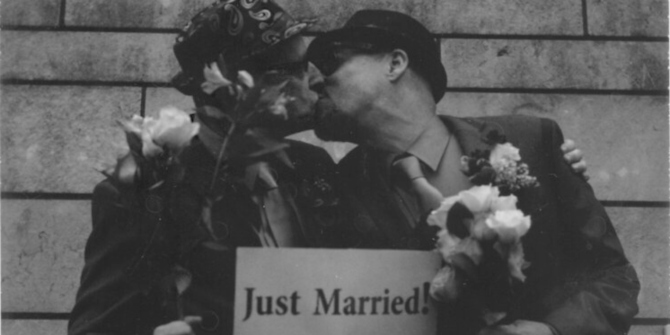Political correctness may lessen overt forms of bullying and workplace harassment, but without internalisation of nonprejudiced values, it may come with the side effect of promoting more passive aggressive forms of discrimination, which work against the goal of diversity, equity, and inclusion. Paris Will and Odessa Hamilton suggest how to progress from political correctness as compliance to a true internalisation of egalitarian values.
A recent poll indicates that 51 per cent of people associate the term diversity, equity & inclusion (DEI) with political correctness (RightTrack Learning, 2021). This reported coupling of terms begs the question of how perceptions of political correctness may be impacting DEI initiatives in the workplace. The reality is that most DEI initiatives fail. The importance of not just meeting compliance targets for diversity, but instead seeking culture change for true inclusion is now receiving much attention (Chavez & Weisinger, 2008; Deloitte, 2014; WIBF, 2021). In many cases, it has been found that quotas imposed by firms are not enough to sustain real change, which brings to question the commitment to DEI on an individual level. This post, therefore, reflects upon political correctness as an ideological construct, how individuals respond differently to politically correct pressures, and how it may be obstructing progress in DEI. We propose that politically correct pressures may have led to superficial change in workplace DEI through the reduction of overt prejudices, but with increased covert forms of discrimination. Lastly, we highlight some promising ways to shift toward a true internalisation of egalitarian values.
“… freedom of speech, by most, is considered a fundamental psychological commodity.”
Origins of political correctness
The ideology behind political correctness is predicated on a principle of tolerance, morality, and equality (Lichev & Hristoskova, 2017), which is very much in line with DEI. It reflects the Greek philosophy of equality in the eye of the law (isonomia); equal civil rights (isopoliteia); equal fortune and happiness (isodiamonia); equal respect (isotimia); equal freedom of speech, and equal political voice (isogoria; Schutz, 1976). Congruently, political correctness implies the presence of sufficient power and support to enforce compliance through informal disapproval or formal penalty. It is, therefore, additionally linked to authoritarianism, coercion, and censorship (Hořavová, 2013), which is the antithesis to the principles of DEI. Essentially, political correctness is a moderating of potentially harmful speech, behaviours or polices, toward more socially acceptable expressions that are less likely to cause offence, or result in law infringements (Sinitin, 2021).
Contentions surrounding political correctness
Be that as it may, the social engineering of language can be controversial. It has been accused of advocating censorship to protect the rights of marginalised and vulnerable groups, while paradoxically censoring the right to expression of thought and infringing on a basic right of freedom of speech. This has proved to be a major point of contention, since freedom of speech, by most, is considered a fundamental psychological commodity.
Further, political correctness is charged with giving carte blanche to the use of emotionally charged accusations (e.g., racist, sexist, homophobic) toward views that dissent from a supposed superior moralistic perspective (Gordon, 2011). Political correctness ultimately complicates engagement between people who differ; rendering interactions and discourse shallow or uncomfortable (Sinitin, 2021). In this way, the politically correct narrative can be detrimental to the DEI agenda. However, the question is whether a middle ground can be reached, since a right to free speech should not equate to a right to affront, and honest transparent conversations are key to a spirit of understanding and empathy between people.
“… there is a substantial discrepancy between our internal and external displays of prejudice…”
Pushback against political correctness
Curiously, humans naturally push back against forced ideas and rules for two primary reasons. The first being emotional reactance; stemming from an instinct to assert our individual beliefs and a right to make independent choices – both potentially jeopardised by political correctness. The second being information contamination; insofar as the emergent politically correct ideology serves to undermine the informational value of formerly held views (Conway et al., 2017; Crawford et al., 2002). Each reason coincides with an innate desire to be right.
Still, pushback against political correctness can be understated and discreet. One result of discrimination becoming socially unacceptable is its transformation into more subtle forms of iniquitous expression that are more socially acceptable, and thus, politically correct (Barreto & Ellemers, 2005). Invariably, there are conditions under which one may refrain from making overtly discriminatory articulations, but political correctness is peculiar in that these acts of personal restraint do not necessarily reflect an assimilation of equitable beliefs, nor an internalisation of egalitarian values. Thus, the risk of a juxtaposition between thought and speech. A further limitation of political correctness is its failure to replace repressive terminology overtime, which suggests it is not permeating into peoples’ true value set, and so a pushback manifests in more subtle ways (Lichev & Hristoskova, 2017). In an ideal world, the pressure of political correctness would not only abate overt expressions of prejudice, but it would also develop into internalised attitudes and behaviours that echo its ultimate intent. Moreover, if operationalised effectively, political correctness would organically advance DEI initiatives.
Differential responses to political correctness
As researchers have found, there is a substantial discrepancy between our internal and external displays of prejudice (Greenwald et al., 1998). Within the same individuals, overt prejudicial attitudes have been detected to a lesser extent than covert attitudes exposed through implicit test evaluations. This discrepancy has been found to be due to political correctness (Levin, 2003), such that individuals are less likely to overtly display prejudicial attitudes due to the pressures of complying with politically correctness. Yet, there was some inter-individual variability, since this finding was crucially dependent on how the individual viewed political correctness. When viewed in a negative light, there was a smaller discrepancy between internal and external prejudices as opposed to when political correctness was viewed in an affirmative way. Among those who viewed political correctness as a negative pressure, they were more likely to rebel against such pressures and thus less likely to act in an egalitarian way.
Additionally, it has been found that inter-individual variability in motivations may determine how one feels about political correctness (Plant & Devine, 2001). Individuals who have low internal, but high external motivation to respond without prejudice are more likely to feel angered and threatened by politically correct pressure. For these people, they may be sensitive to other imposed pressures, but as they do not have internal motivation to be unprejudiced, this dichotomous motivation can make them averse to politically correct pressures. This in turn may result in behavioural backlash – an outright refusal to be politically correct.
“Given that forceful mandates to observe politically correct views are often met with resistance it would likely be more effective to depart from force and coercion to a more amenable approach of persuasion…”
Taken together, these findings show that inter-individual motivations to respond in an unprejudiced manner can form our views on political correctness, which can then impact our external displays of prejudice towards others. It seems that political correctness can be effective in moderating external displays of prejudice, but motivation must be taken into consideration, as backfiring effects can occur when individuals are especially averse to politically correct pressures.
Consequences of political correctness for DEI
There are certainly benefits to reducing external expressions of prejudice in the workforce, as political correctness would encourage among most individuals. It may lessen overt forms of bullying and workplace harassment. However, without internalisation of nonprejudiced values, it may come with the side effect of promoting more passive aggressive forms of discrimination, such as incivility and microaggressions. Such actions have been described as ‘modern discrimination’ in organisations (Cortina, 2008), as they manifest as subtle prejudicial actions that can be hard to detect and, thus, hard to address. Although subtle, they can still have substantial detrimental effects on individuals in the workplace (Nadal et al., 2014), and can also make true inclusion difficult to achieve. It is likely no coincidence that such covert forms of discrimination have become a modern-day phenomenon that coincides with a rise in politically correct ideologies. As a result, political correctness may be responsible for the shift from overt to covert workplace discrimination. This represents a lack of real progress for workplace inclusion and may be inhibiting lasting impact arising from DEI initiatives.
From DEI compliance to internalisation
Given its contentious and often provocative nature, the challenge then becomes how to progress from political correctness as compliance to a true internalisation of egalitarian values. Without this transference, the effectiveness, and indeed permanence, of politically correct ideologies is untenable, and DEI becomes futile.
“a genuine willingness to listen and change on both sides of the aisle (…) takes a particular level of maturity and rationality, dosed with humility…”
One must first seek to change the narrative. Political correctness has been tied to differences in beliefs and in some instances a complete polarisation of views (Gordon, 2011). A refocus on similarities and seeking common ground can often help people appreciate differences. The ultimate intention behind politically correctness is to alter discriminatory perspectives (Sinitin, 2021), but how can one impose change, when not being open to change [by example] themselves. Compromise of attitude is key. Given that forceful mandates to observe politically correct views are often met with resistance (Conway et al., 2017), it would likely be more effective to depart from force and coercion to a more amenable approach of persuasion for a depth of influence. Certainly, persuasion through the proposition of a compelling line of reasoning, is a subtler and less antagonistic method of communicating a supposed moralistic point of view.
Maintaining an awareness of thought, with regard to why you hold the views you do and being self-reflective enough to recognise possible limitations to your own belief system is central to holding a rational conversation about DEI. For that reason, promoting introspection could prove more effective than imposing conformity. Equally, attempting to understand why someone may hold the view that they do is crucial to developing empathy and engaging in reasonable, logical communication. There should be an appreciation for differences that, more often than not, derived from our environmental milieu, inclusive of upbringing, culture, and life exposures. These dictate the experiences, and thus, beliefs, principles, and convictions that we each hold. In order for such a process to be effective, one cannot assume to hold the moral high ground; insofar as maintaining a belief that any divergence from our own perspective is erroneous and redundant. In this way, both parties enter into discourse receptively, with a view to understanding the other and respecting any differences.
Finally, taking the emotion out of it. Open, honest, yet composed discussions are paramount to changing minds and instilling values. Instead of engaging in political diatribe, we should seek to understand differences in views and values – engage in perspective-taking, even if those perspectives are diametrically opposed to our own. Only then can we open the minds of others to assume our views. Instead of a combat brewing because of different views held [with accusations and insults in tow], this level of sensible and pragmatic discourse could result in a healthy respect for the alternative view, or even a change of view.
Ultimately, political correctness would likely be more effective in advancing DEI initiatives if reframed as a ‘respect for others’, irrespective of their views; endeavouring to eliminate the ‘us against them’ dogma, with a view to treating everyone with respect, in order to coexist and collaborate. As in all DEI initiatives, its effectiveness is rooted in a genuine willingness to listen and change on both sides of the aisle. This takes a particular level of maturity and rationality, dosed with humility.
♣♣♣
Notes:
- This blog post expresses the views of its author(s), not the position of LSE Business Review or the London School of Economics.
- Featured image by Marco Verch Professional Photographer, under a CC-BY-2.0 licence, via Flickr
- When you leave a comment, you’re agreeing to our Comment Policy





